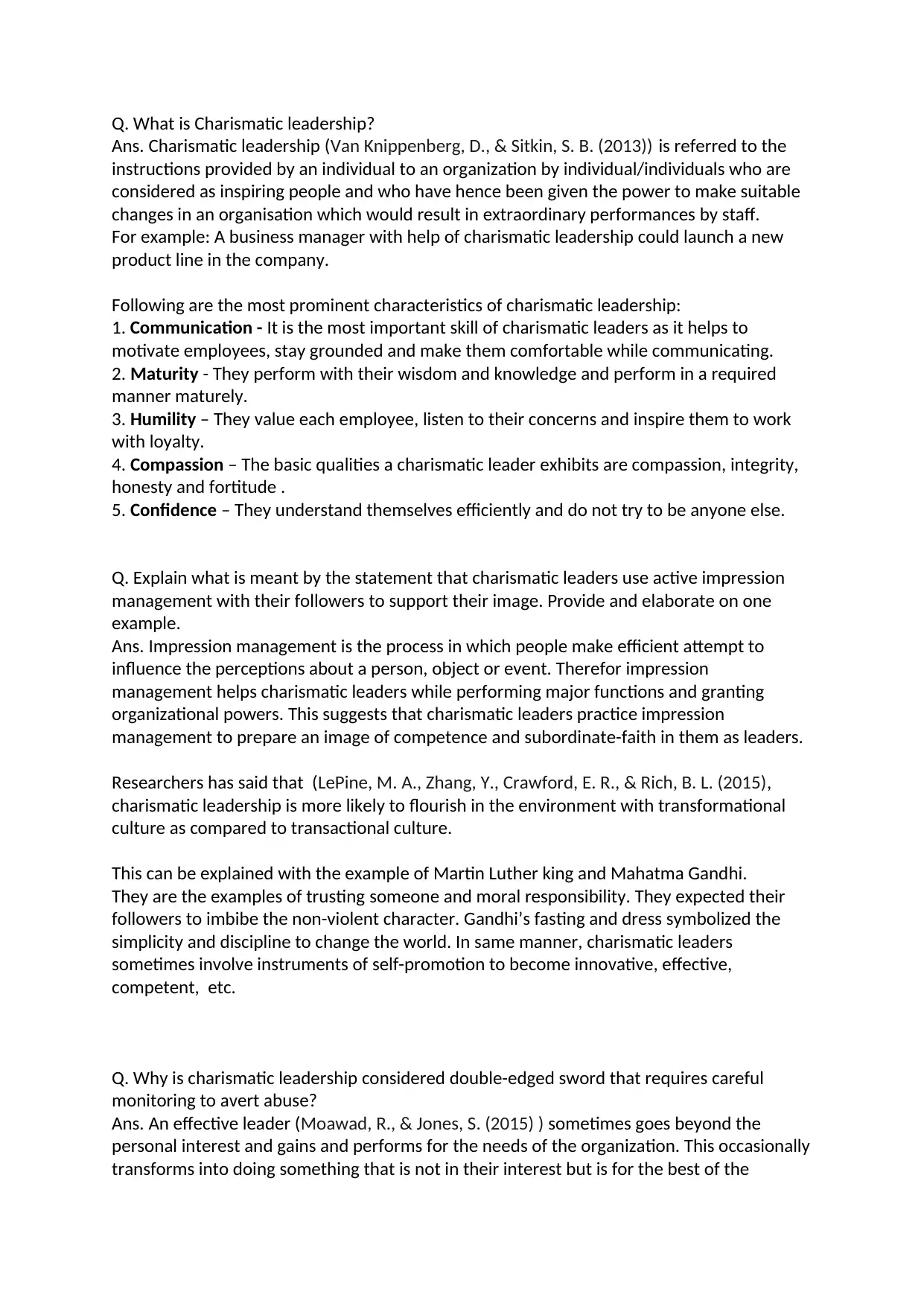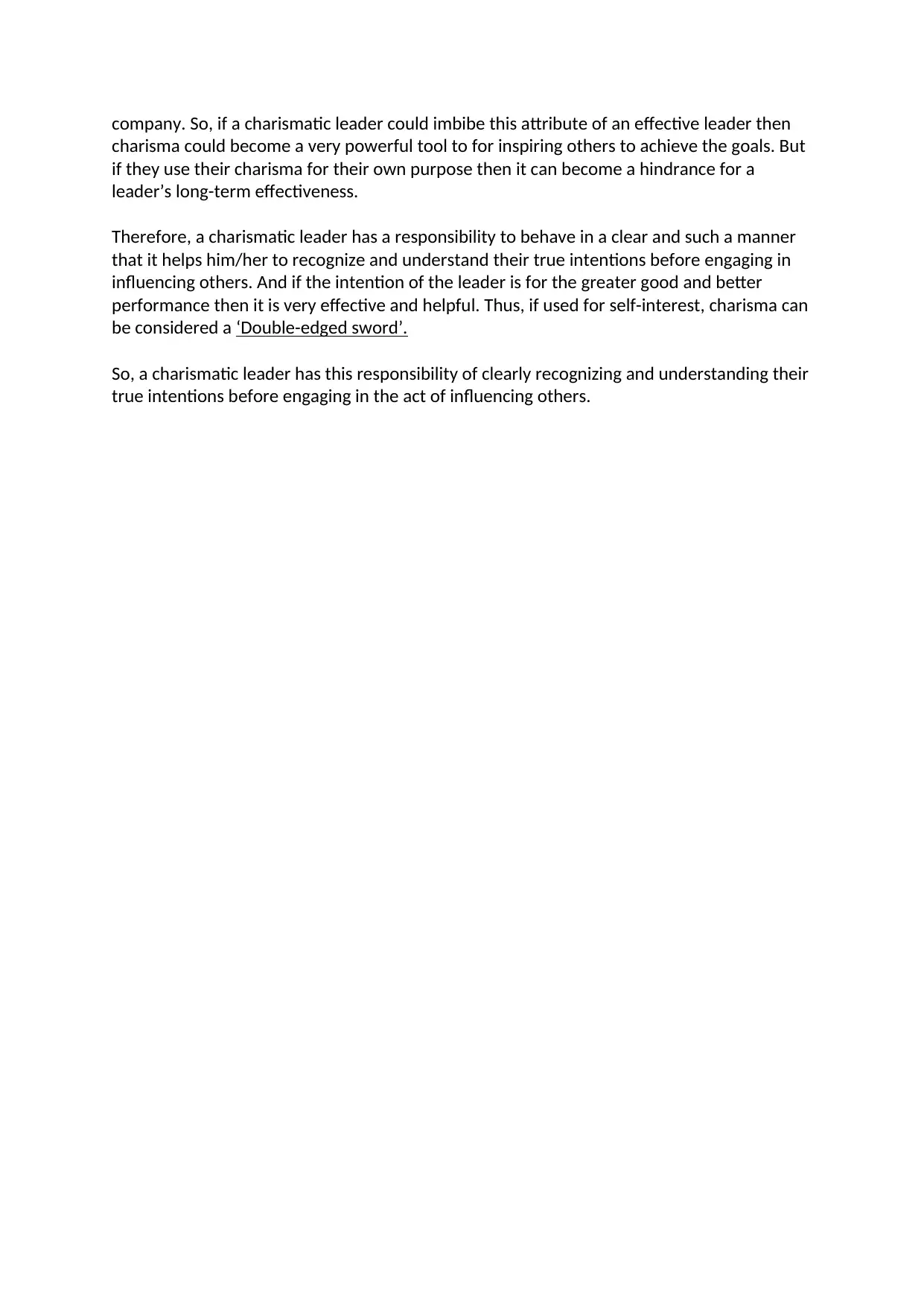Charismatic Leadership: Advantages, Disadvantages, and Monitoring
VerifiedAdded on 2019/09/22
|3
|777
|422
Homework Assignment
AI Summary
This assignment delves into the concept of charismatic leadership, defining it as the ability of an individual to inspire and effect significant changes within an organization, leading to exceptional performance. The assignment outlines key characteristics of charismatic leaders, including communication, maturity, humility, compassion, and confidence. It further explores how charismatic leaders employ impression management to shape perceptions and support their image, providing examples such as Martin Luther King and Mahatma Gandhi. The assignment also examines the double-edged nature of charismatic leadership, highlighting the potential for abuse if leaders prioritize self-interest over organizational goals, and emphasizing the importance of careful monitoring to ensure ethical and effective leadership. The assignment is supported by relevant references to academic research on the topic.
1 out of 3










![[object Object]](/_next/static/media/star-bottom.7253800d.svg)